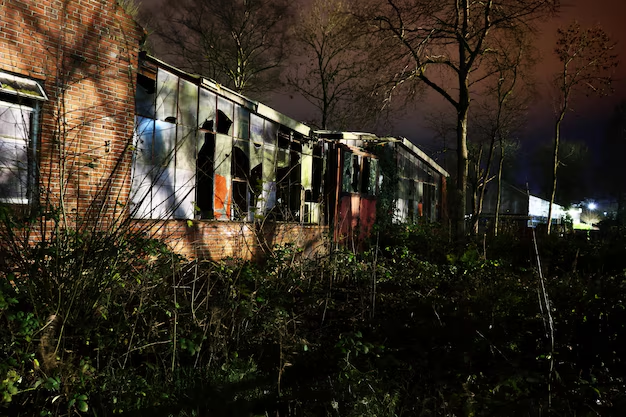Your Guide to Chicago Homeless Shelter
What You Get:
Free Guide
Free, helpful information about Shelter FAQ and related Chicago Homeless Shelter topics.
Helpful Information
Get clear and easy-to-understand details about Chicago Homeless Shelter topics and resources.
Personalized Offers
Answer a few optional questions to receive offers or information related to Shelter FAQ. The survey is optional and not required to access your free guide.
Finding Support: Navigating Chicago's Homeless Shelter Resources
Chicago, a city renowned for its dynamic skyline and vibrant culture, also faces significant challenges related to homelessness. Whether you've found yourself in an unexpected situation or are looking to support someone in need, understanding the network of homeless shelters in Chicago can be a critical step in securing immediate assistance. This guide delves into the resources available in the city and explores additional avenues for support.
Accessing Shelter Options
Chicago's network of shelters is designed to offer a range of services that cater to different needs. Here are some key categories:
Emergency Shelters: Provide immediate, temporary housing for those in crisis. They serve as entry points to more structured support systems and include locations like Franciscan Outreach and Pacific Garden Mission.
Transitional Housing: Offers more extensive accommodation aimed at fostering stability and progression towards permanent housing. Organizations such as The Night Ministry provide such programs, often including counseling and employment support.
Family Shelters: Specific shelters accommodate families, offering units that keep family members together and provide resources tailored to children and adults alike.
Beyond Shelter: Financial Assistance and Educational Opportunities
Addressing homelessness isn't just about finding shelter; it's about exploring avenues that can lead to longer-term stability. Here's how you can expand your resources beyond temporary housing:
Government Aid Programs
Supplementary Nutrition Assistance Program (SNAP) and Temporary Assistance for Needy Families (TANF) provide essential financial aid to eligible individuals and families. These programs can alleviate some financial burdens, allowing those facing homelessness to redirect resources towards more stable housing options.
Debt Relief and Credit Solutions
For those trapped in cycles of debt, exploring debt relief solutions may be essential. Engaging with credit counseling services can help negotiate manageable repayment plans or discharge debts that have become unmanageable.
Educational Grants
Access to education can open doors to new opportunities and improve job prospects. Investigate local colleges and community programs offering educational grants or affordable courses focused on skill development. The Pell Grant program is a national resource that can be invaluable for qualifying individuals seeking higher education.
Community Support and Networking
Being part of a community can provide a support system that might otherwise be unavailable. Volunteering or participating in community initiatives can foster a sense of belonging and open unexpected doors to support and friendship.
Tools and Programs for Financial Assistance 🌟
- SNAP and TANF: Federal programs offering food and temporary financial assistance.
- Debt Relief Counseling: Services available to negotiate repayments and manage debts.
- Pell Grant: Educational grants for qualifying individuals pursuing college or technical education.
- Energy Assistance Programs: Help in managing utility bills to prevent housing instability.
- Job Training Workshops: Community programs providing skills development and job placement assistance.
Through understanding and utilizing these diverse resources, individuals facing homelessness in Chicago can begin to chart a path towards more stable futures. From immediate shelter to longer-term financial and educational opportunities, the city offers numerous options designed to support and empower its residents.
What You Get:
Free Shelter FAQ Guide
Free, helpful information about Chicago Homeless Shelter and related resources.

Helpful Information
Get clear, easy-to-understand details about Chicago Homeless Shelter topics.

Optional Personalized Offers
Answer a few optional questions to see offers or information related to Shelter FAQ. Participation is not required to get your free guide.


